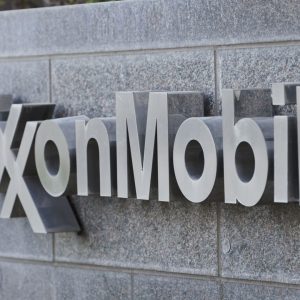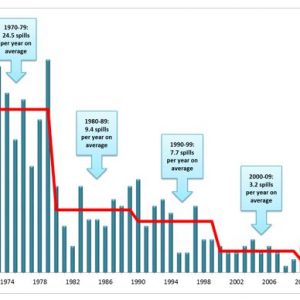Thanks to our friends at Axios, NPR, Vox, and the army of local and national media for their great reporting efforts going on across the Gulf right now. This post is gleaned from a range of news feeds.
Arkema Plant
We have new reports of two explosions at the Arkema chemical plant in Crosby, Texas this morning. See the reports from NPR, The Houston Chronicle, and others. Arkema has warned that additional explosions are possible. They have various chemical substrates and products stored across multiple locations across the sprawling plant, one of the largest in the United States. Those compounds need to be kept cold. Having lost power and back-up power the compound are becoming increasingly volatile. Given the first explosions started around 2am local time, more explosions are likely as we go into the warmer periods of the day. Houston residents living within a 1.5-mile radius of the plant were told to evacuate. New reports are coming in of at least 10 deputies and possibly residents were admitted to the hospital after breathing fumes, although the sheriff said Arkema told them it was believed to be a “non-toxic irritant.” This organic peroxide plant produces a variety of plastics such as PVC.
Chemical Plant Updates can be found here.
Plant operators have said their “best course of action is to let the fire burn itself out.” Good times!
Elsewhere the The New York Times reports that Houston officials are now dealing with a “toxic stew of chemicals, sewage, debris and waste that still floods much of the city.” This was the same concern we saw in New Orleans post-Katrina, although the scale is much, much larger. Interestingly, this was one of the areas of hurricane impact that New Orleans would generally dismiss in the months after the storm.
Other Spills and Releases
E&E News reports dozens of spills from refineries and chemical plants across the coastal zone of eastern Texas.
- “While it could be months before the full environmental impact of the storm — including sewage overflows, leaking underground tanks, and seepage from thousands of submerged homes and cars — becomes clear, preliminary reports show refineries and chemical plants have released millions of pounds of toxic chemicals into the air and water,” the report says.
- E&E spoke to Mathy Stanislaus, who was a top Obama-era EPA official, about Superfund sites. He noted that the biggest dangers are at active cleanups with surface contamination that can spread to floodwaters, as well as the underground storage tanks with oil and chemicals that dot the region.
U.S. EPA said it was inspecting two Superfund sites near Corpus Christi on Wednesday and working with Texas state officials to gauge and respond to the storm’s effect. Reuters has more here.
Oil Industry
Big pipeline outage: Colonial Pipeline is shutting down its major arteries that bring large amounts of gasoline and other refined products to markets thousands of miles into the Northeast and states in between. It’s the largest refined petroleum network in the country, supplying 100 million gallons daily.
- “Once Colonial is able to ensure that its facilities are safe to operate and refiners in Lake Charles and points east have the ability to move product to Colonial, our system will resume operations,” the company said, via CNN.
- More context: “Colonial was already running at reduced rates due to Harvey-related disruptions at its origin point in Texas, but the closure of the entire system threatens to escalate concerns about fuel supplies in the world’s largest oil consumer,” the Financial Times reports.
“Record flooding in Texas is straining superhighway of energy trade,” is the subhead of this in-depth Wall Street Journal exploration of how the storm has snarled the vast network of refineries, ports, pipelines, trucking routes, and other energy infrastructure along the Gulf Coast.
AAA reported early Thursday that the average nationwide price of gasoline is now $2.45 per gallon, which is nearly a nickel above yesterday’s price and 10 cents higher than it was a week ago. Paul Sankey of Wolfe Research noted the direct harm to various kinds of energy infrastructure and companies in the Houston region is only part of the story; “Expressions of unharmed infrastructure may prove to be meaningless — there is no way to get people to run much of this asset base, regardless of its condition.” Reuters noted that fuel shortage concnerns ahead of the U.S. Labor Day weekend were mounting, but my experience suggests these are initially likely to be fairly localized.





Leave a Reply